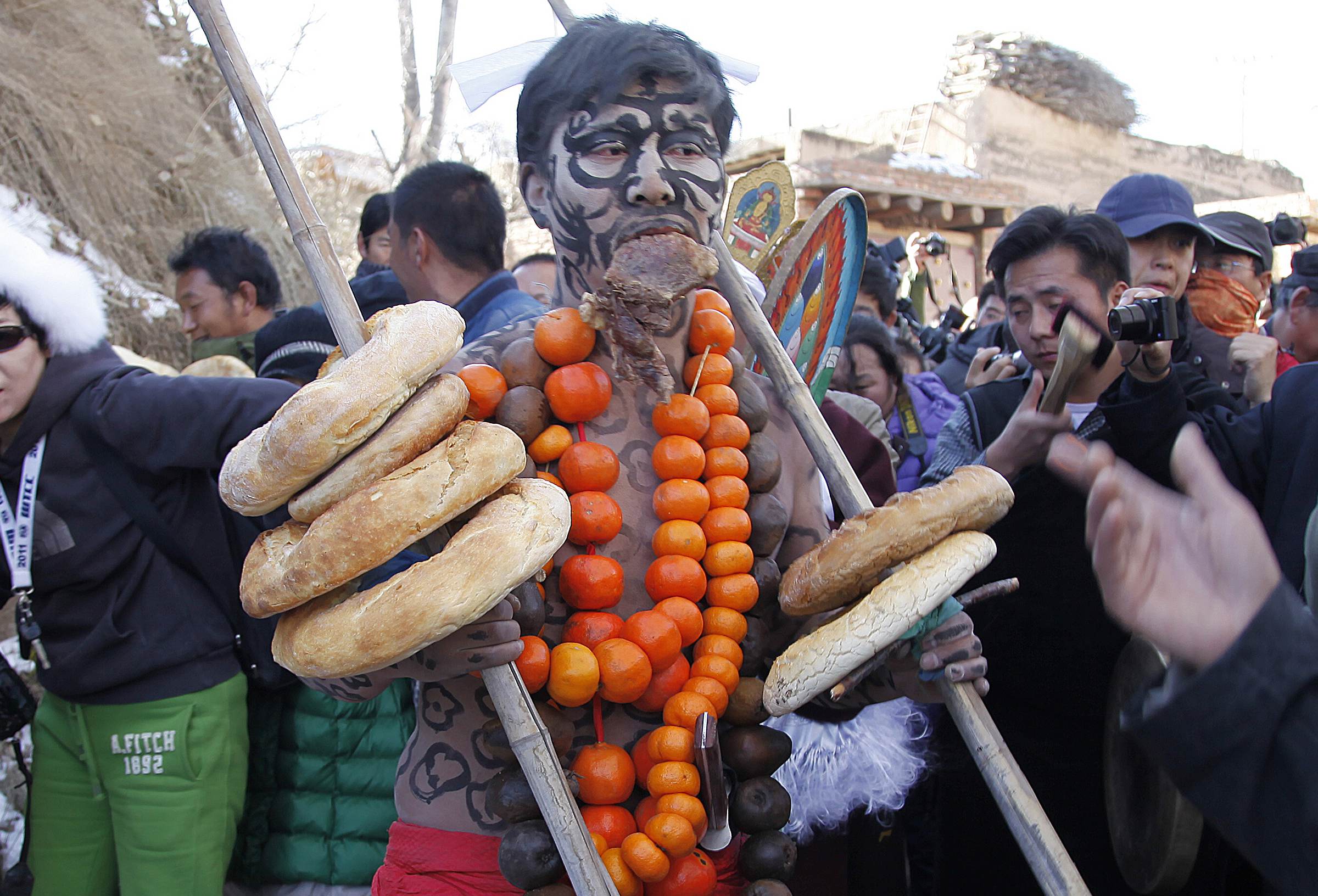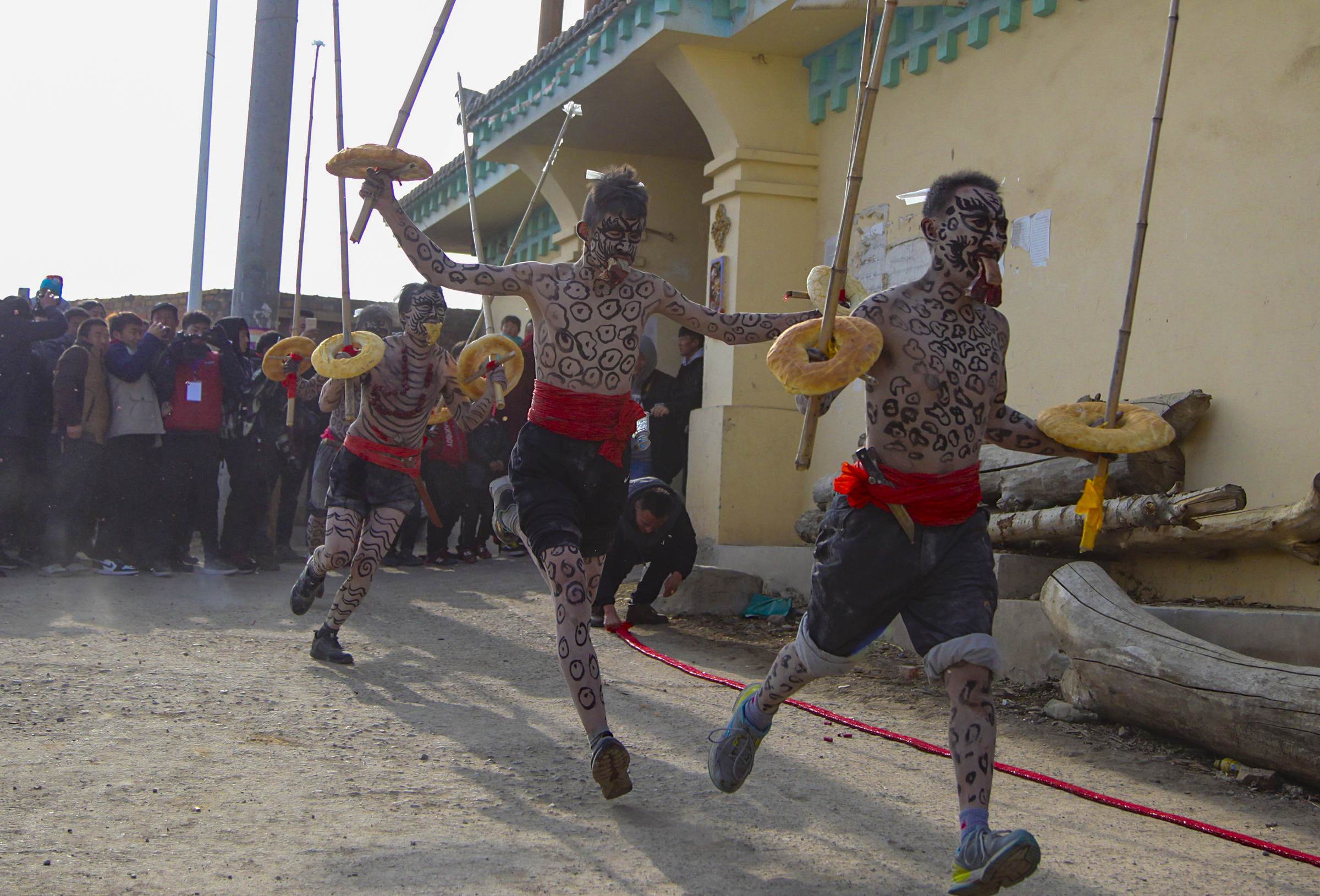Wutu is an archaic Chinese term for tiger. Wutu dance is a prehistoric folk activity popular in Nianduhu Village and other Monguor villages to worship the deities/spirits for good luck and expelling evil spirits. It is held annually in Nianduhu Township, Tongren County on the 20th day of the 11th lunar month. During this period, seven young men volunteer to play the role of "Wutu". They get naked, pull pants up to their thighs, smear their bodies with incense ash, and then paint them the tiger pattern in black and white. After a solemn ceremony in the village temple of Erlang deity, the performers hold a long pole with a white paper scripture tied to the top of it with both hands. They dance out of the temple gate and dance three times around the incense platform. With the sound of firing a gun, they wildly go down the mountain, into the village, and into residential homes by scaling the walls to find food. While they walk, they also dance to manifest that the disasters and illnesses of the families are adsorbed into their own bodies. They finally dash to the river outside the village to clean up their bodies. The performers stay outside the village for the night and return home the next day.
Research shows that Wutu is the inheritance and development of the ancient ritual dance from the Chu culture during the Spring and Autumn period (770BC–476 BC). It is a valuable "living fossil" for studying ancient national history and culture. On May 20, 2006, the Monguor Wutu was enlisted in the First List of National Intangible Cultural Heritage by the State Council.





